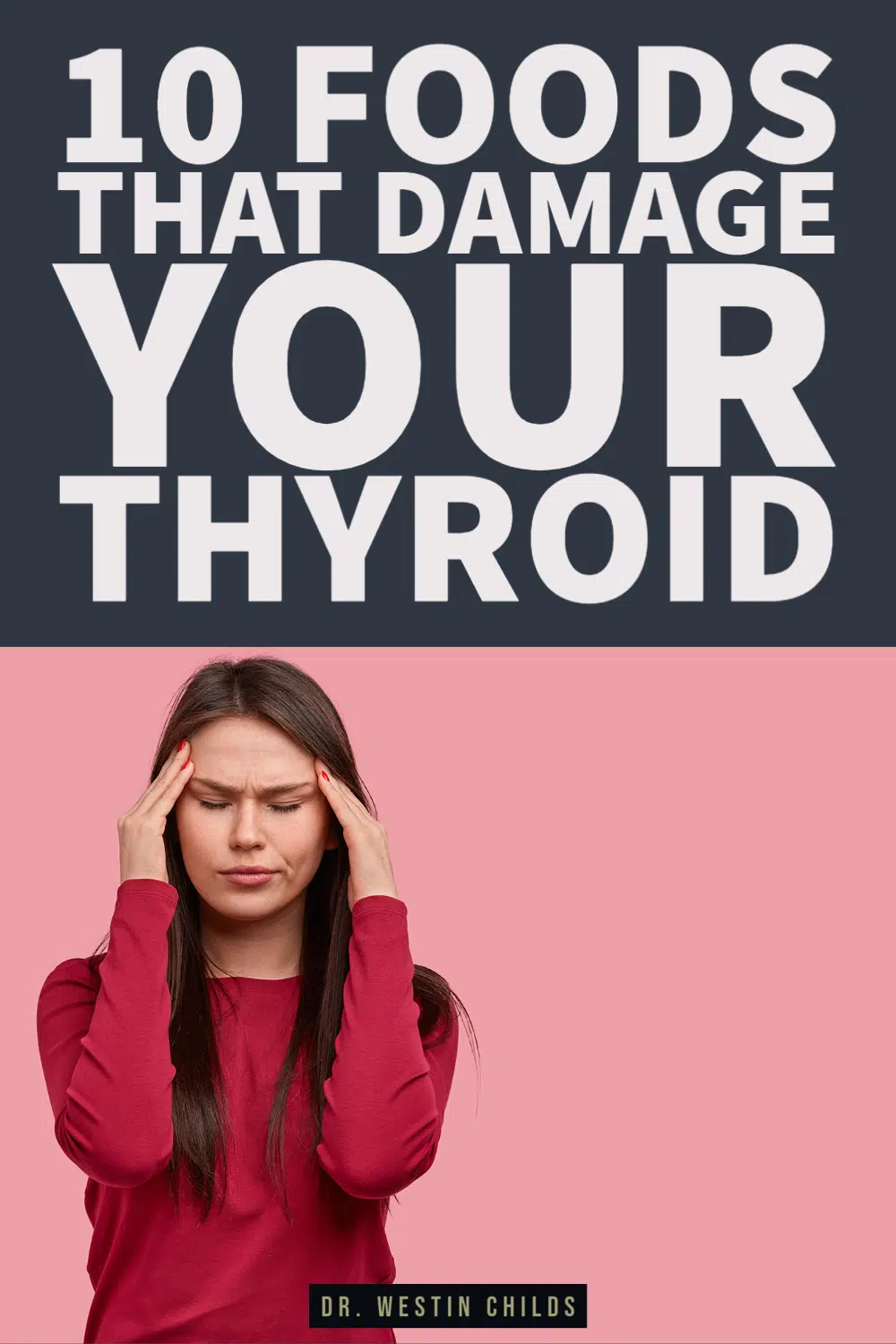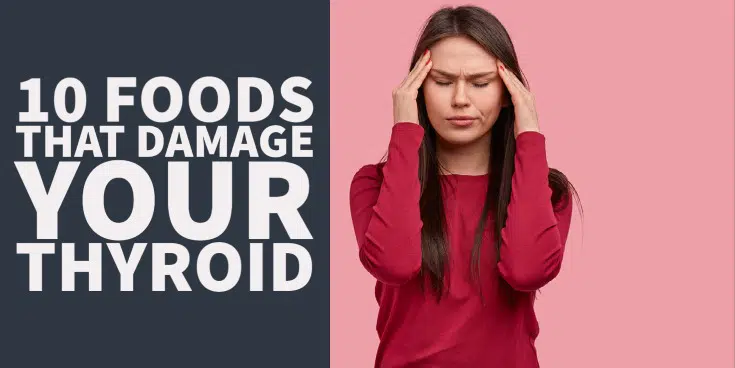Tired of letting your thyroid control how you feel?
If so, you’re in good company with thousands of thyroid patients.
Which is why so many of them look to food as a potential solution to their symptoms.
But will changing your diet actually help your thyroid?
Abso-freaking-lutely.
In fact, it’s one of the first things that you should do as a thyroid patient because it doesn’t require anything but some knowledge and a little bit of effort.
Throughout the years, though, I’ve found that most people understand the types of food that they should be eating (like broccoli, salmon, etc.) but go wrong when it comes to the foods they should be avoiding.
Which is why today we are talking specifically about the worst foods for your thyroid:
DOWNLOAD FREE RESOURCES
Foods to Avoid if you Have Thyroid Problems:
I’ve found that these 10 foods cause the most problems for thyroid patients. Learn which foods you should avoid if you have thyroid disease of any type.
The Complete List of Thyroid Lab tests:
The list includes optimal ranges, normal ranges, and the complete list of tests you need to diagnose and manage thyroid disease correctly!
#1. Refined & Processed Sugar

In high amounts, excess sugar consumption can cause all sorts of problems up and including weight gain and insulin resistance (1).
And because so many people are eating far more sugar than they realize, including thyroid patients, it’s first on our list.
It’s not that sugar by itself is inherently dangerous, contrary to what many might tell you.
In fact, your thyroid has a high demand for carbohydrates, and sugar can definitely fulfill this need.
But it is really easy to get more than you need, especially since refined sugars are added to so many different foods.
Coupled with the fact that sugar is dangerously delicious, thyroid patients often get far more than they actually need which contributes to weight gain and insulin resistance which are already common among this group.
And it’s for these reasons that processed sugar is included.
Does this mean you need to avoid sugar 100%?
No way, in fact, your thyroid function will probably improve by eating healthy sources like fruit, fruit juices, and honey.
#2. Gluten
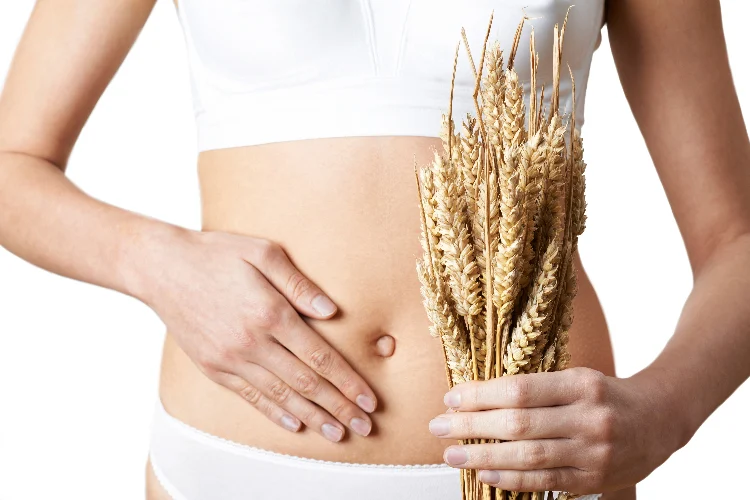
While gluten is definitely a problem for a majority of people with thyroid problems, I am finding more and more that some people can tolerate gluten after a withdrawal period of 30-60 days.
Gluten is often mentioned as a ‘no-no’ if you have thyroid disease because Celiac disease is considered an autoimmune disease.
This is a potential problem because we know that people with one autoimmune disease (such as Hashimoto’s thyroiditis) tend to experience other autoimmune conditions at a very high rate.
And this connection appears to be true for people with Hashimoto’s thyroiditis who experience an increased risk of developing gluten intolerance by about 4x what is normal for the standard population (2).
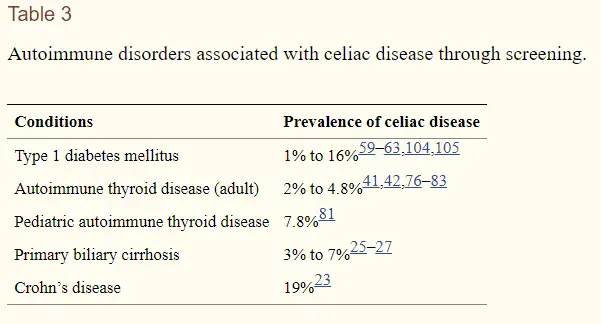
#3. Dairy
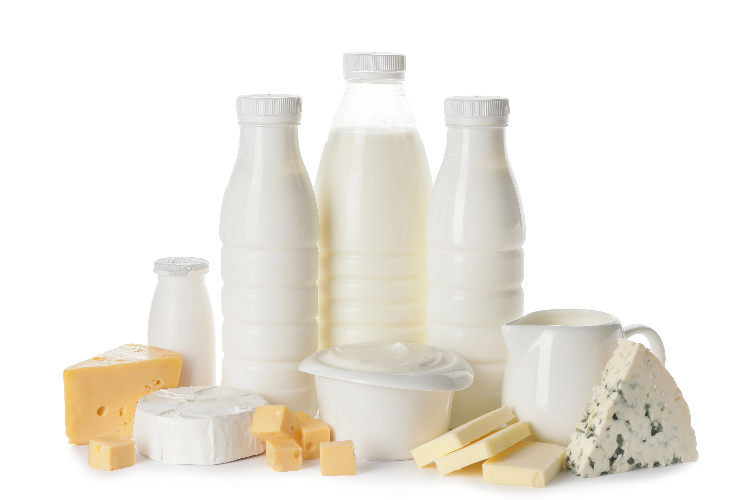
Many individuals in the United States are considered to be lactose intolerant (meaning they can’t handle the milk sugar lactose) while another group of patients are intolerant of dairy due to proteins such as casein.
You can figure out which group you fall into by avoiding dairy altogether for a set amount of time.
But, regardless of why you don’t tolerate dairy, it’s not a good idea to consume it if you experience symptoms such as abdominal pain, gas, bloating, etc.
But another reason to potentially avoid it has to do with the fact that patients with thyroid disease (especially those with Hashimoto’s) may experience an improvement in their TSH when they avoid it.
This was only true for those people with Hashimoto’s who also had lactose intolerance, but the researchers also found that people with thyroid disease tend to experience lactose intolerance at a higher rate than the normal population.
The verdict?
Consider removing dairy from your diet if you have thyroid disease and especially if you have Hashimoto’s thyroiditis!
The worst thing that can happen is that you experience no change in your symptoms while the best thing that could happen is that you feel a lot better.
#4. Alcohol

It shouldn’t come as a surprise that alcohol can potentially cause problems to organs in your body (consider the case of alcoholic liver disease if you don’t believe me!).
It may surprise you to find out that alcohol also tends to cause problems directly with your thyroid gland.

Alcohol has been shown to blunt your thyroid by inhibiting the release of pituitary and hypothalamic hormones (4) due to the fact that it is toxic to certain cells in your body.
Alcohol can also promote obesity through its influence on insulin resistance and it can ultimately lead to liver damage which can further impair thyroid function and conversion.
If you have thyroid disease then you should avoid alcohol 100%.
#5. Trans-Fat
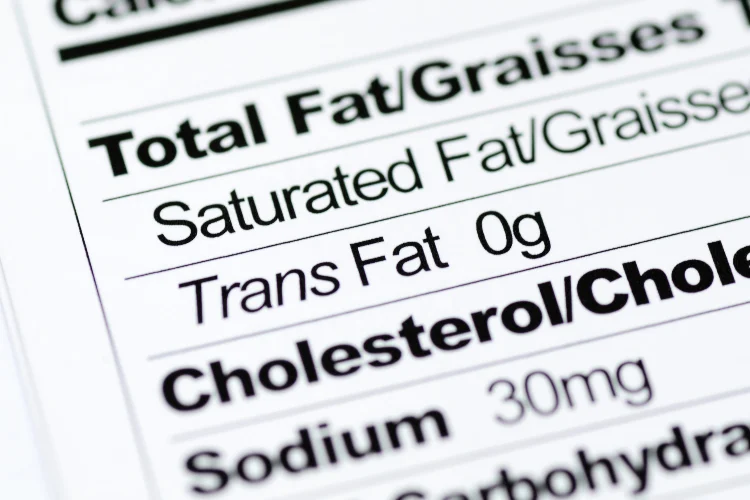
Most people know that trans-fat is bad for your overall health but what you may not know is that trans-fat may also cause thyroid dysfunction.
Some studies have linked high-fat diets to thyroid dysfunction (5) – just another reason to avoid this type of fat.
#6. Industrial Seed Oils & Fats
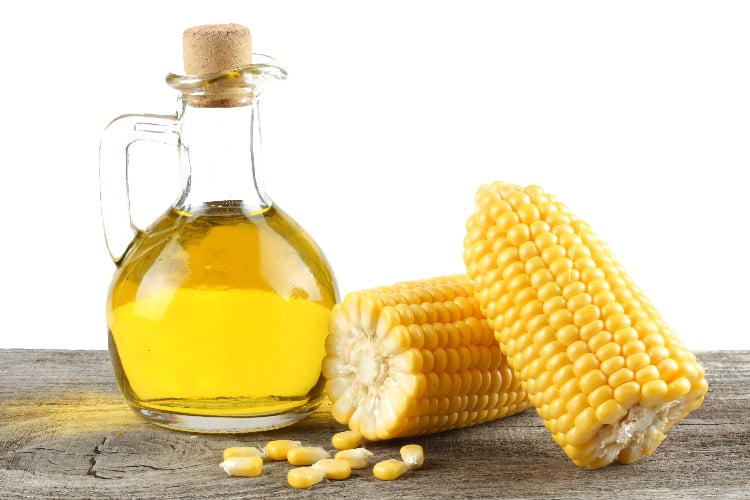
It’s pretty straightforward but there are a number of oils that fall into the category known as partially hydrogenated vegetable oils (PHVO’s for short) and these fats have been known to cause inflammation in your body (6).
Inflammation is a problem for your thyroid because it blocks the conversion of T4 into T3.
This is one of the reasons that people recommend that you consume healthy fats (coconut oil, extra virgin olive oil, etc.) because these non-hydrogenated vegetable oils are not associated with inflammation.
#7. Highly Processed Soy
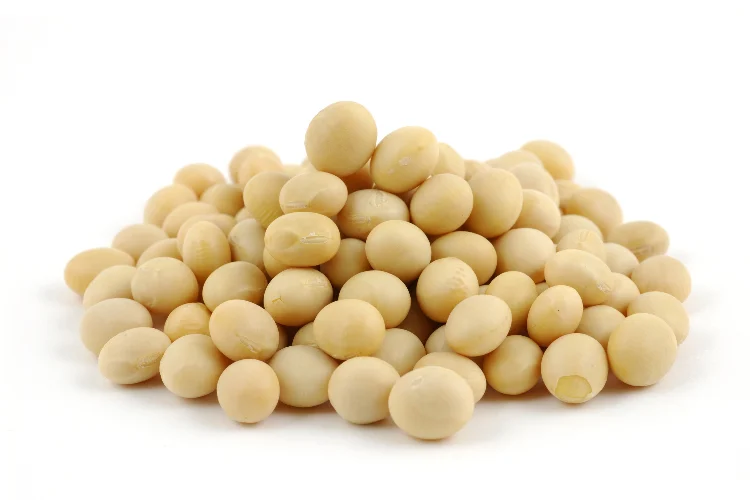
Soy is one of those foods that really fits in the middle ground of good and bad.
What do I mean?
Some studies have shown that soy can theoretically cause problems in your thyroid such as blocking iodine uptake and potentially inhibiting thyroid medication absorption (7).
The only problem is that these effects are not necessarily seen clinically in many people (8).
So, on the basis that soy can theoretically cause thyroid dysfunction, it’s probably best to avoid it.
There’s probably a big difference in the quality of the soy foods that you are consuming.
If you find high-quality organic soy products (and you are an individual who can tolerate them) some mild use of soy is probably okay.
But, if you are someone who tends to be very sensitive to foods or if your thyroid function is going hay-wire (with frequent fluctuations up and down) then you probably want to avoid soy altogether.
#8. Frozen And Highly Processed Foods
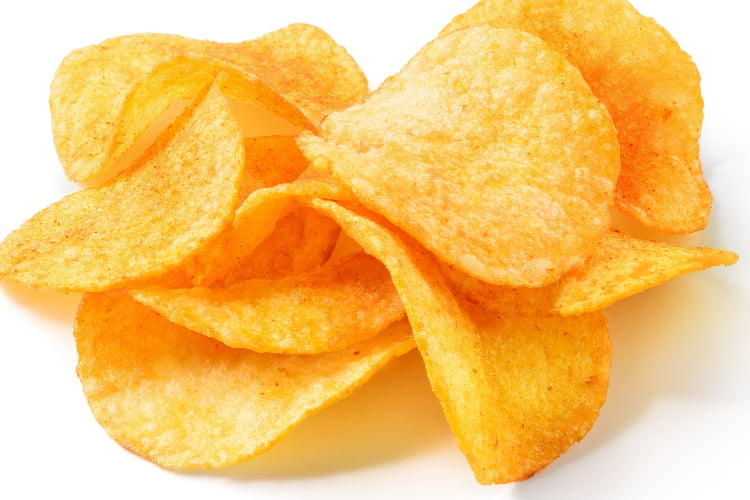
Frozen foods and all-in-one meals all have one thing in common: plenty of preservatives.
Preservatives help your food stay fresh for a long period of time which can be a good and bad thing.
These preservatives are either man-made or naturally occurring but either way, they can potentially cause problems for your thyroid.
What isn’t well known is how each of these preservatives (especially the man-made variety) impacts our health over the long term.
And, because you just don’t need to consume a large amount of them (you can simply make fresh foods!) I recommend that you avoid them.
You can find a list of how various known chemicals interact with and cause thyroid dysfunction in this study (9).
#9. Legumes/Beans
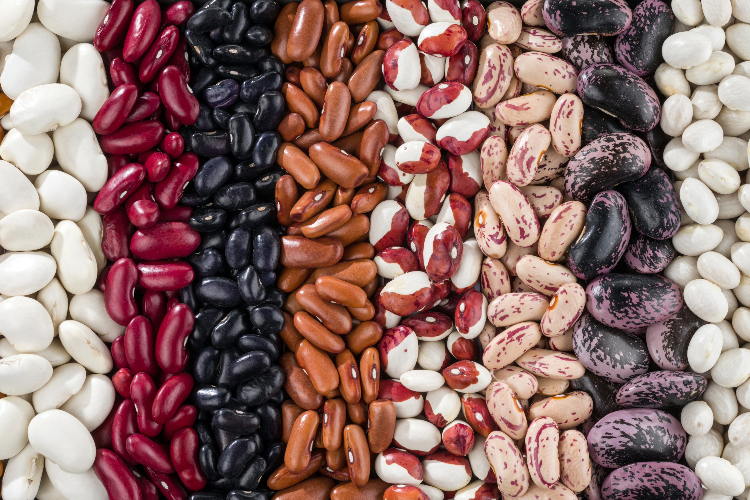
It turns out that legumes and beans really don’t want humans to eat them.
They have a combination of naturally occurring substances such as goitrogens and lectins (10) which can potentially cause problems for your thyroid.
Proper preparation and handling of these foods can limit your exposure to these plant-based chemicals, but not everyone tolerates them the same (even after the correct preparation).
Due to the fact that so many people simply don’t tolerate them, and due to the fact that these chemicals can potentially cause problems to your gut health, it is probably best to avoid legumes and beans at least initially.
Re-introducing them at a later date will work well for some individuals, but you should not use them if you notice abdominal pain/gas/bloating afterward.
#10. Coffee
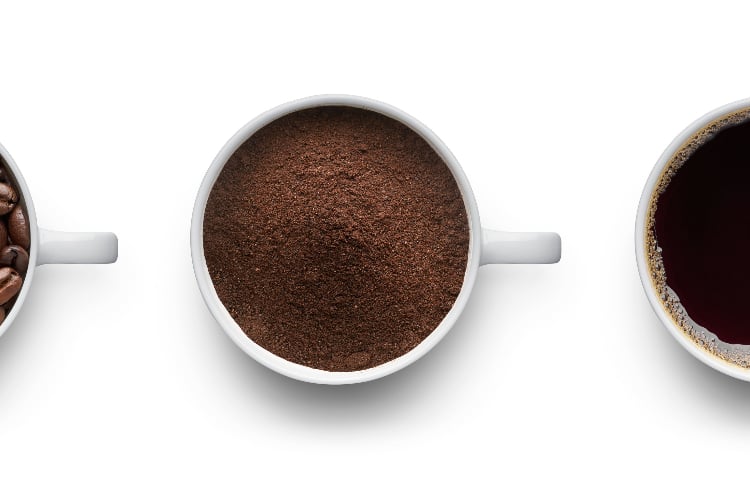
There are probably many of you out there who aren’t going to like this one, but you should at least hear me out!
It’s not clear to me whether or not coffee is inherently good for you or bad for you because there are conflicting studies that show both sides to be true.
But let’s table that discussion for today and focus solely on your thyroid.
Coffee is potentially a problem for thyroid patients because it has been shown to temporarily suppress TSH (though this study was performed in rats).
The suppression in TSH may not necessarily be a bad thing but in this case, it was because it was also associated with a decline in both T3 and T4 levels (triiodothyronine and thyroxine) about 6 hours after ingestion (11).
This could probably be overlooked if it wasn’t the only problem.
Perhaps even the biggest problem with coffee is the fact that it is primarily used (and perhaps abused) as a stimulant or energy supplement.
The continual use of coffee to increase your energy may come at a cost to your hypothalamic-pituitary-thyroid and hypothalamic-pituitary-adrenal axes.
Constant stimulation of these axes may diminish your normal hormone response to stress and cause issues such as fatigue, insomnia, and depression.
Coffee is another one of those food groups that is probably well-tolerated by some people with varying degrees in the middle.
Conclusion
The world of dietary advice can be confusing and I don’t envy people who are confused about all of the information available!
I’ve tried to make the information bite-size and easy to consume in this article.
The bottom line if you have thyroid disease is this:
Try to find a structured diet (one with lots of online support and community) to follow and one that includes healthy foods that you should be eating while avoiding those foods that we know are potentially harmful to your thyroid.
From there you can tailor or modify the diet to fit your specific needs.
This will allow you to obtain the best possible results!
Now I want to hear from you:
Are you currently struggling with thyroid disease?
Do you know which foods you should be eating or avoiding?
Which diet have you used and how has it helped you?
Leave your comments or questions below to keep the conversation going!
Scientific References
#1. https://www.ncbi.nlm.nih.gov/pmc/articles/PMC1204764/
#2. https://www.ncbi.nlm.nih.gov/pmc/articles/PMC2111403/
#3. https://www.ncbi.nlm.nih.gov/pubmed/24078411
#4. https://www.ncbi.nlm.nih.gov/pmc/articles/PMC3743356/
#5. https://www.ncbi.nlm.nih.gov/pmc/articles/PMC4220075/
#6. https://www.ncbi.nlm.nih.gov/pubmed/18842776
#7. https://www.ncbi.nlm.nih.gov/pubmed/6243165
#8. https://www.ncbi.nlm.nih.gov/pubmed/16571087
#9. https://www.ncbi.nlm.nih.gov/books/NBK285560/
#10. https://www.ncbi.nlm.nih.gov/pmc/articles/PMC4740614/
